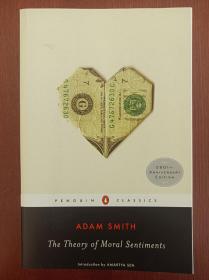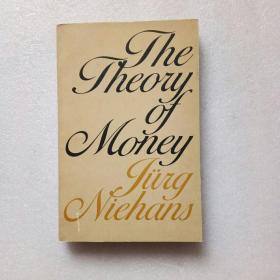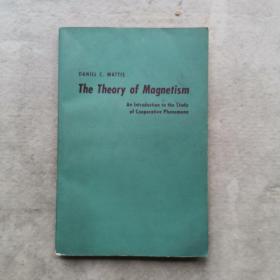
The Theory of Moral Sentiments(现货,实拍书影)
Anniversary edition, Introduction by Amartya Sen
¥ 85 九五品
仅1件
作者Adam Smith (author), Ryan Patrick Hanley(editor), Amartya Sen (introduction)
出版社Penguin Classics; Anniversary edition
ISBN9780143105923
出版时间2010
装帧平装
页数528页
货号A24
上书时间2021-05-19
- 在售商品 暂无
- 平均发货时间 13小时
- 好评率 暂无
- 最新上架
商品详情
- 品相描述:九五品
-
书脊上端有小磕凹印,外表边缘轻微磕碰磨损折痕,新书未曾使用,详见实拍书影。
10@A24
- 商品描述
-
Best known for his revolutionary free market economics treatise The Wealth of Nations, Adam Smith was first and foremost a moral philosopher. In his first book, The Theory of Moral Sentiments, he investigated the flip side of economic self interest: the interest of the greater good. Smith's classic work advances ideas about conscience, moral judgement and virtue that have taken on renewed importance in business and politics.
Adam Smith was born in Scotland, in 1723, and received his early education at the local burgh school. He subsequently attended Glasgow University (1737 to 1740), and Balliol College, Oxford (1740 to 1746). Two years after his return to Scotland, Smith moved to Edinburgh, where he delivered lectures on Rhetoric. In 1751 Smith was appointed Professor of Logic at Glasgow, but was translated to chair of Moral Philosophy in 1752. The Theory of Moral Sentiments was published in 1759, and The Wealth of Nations in 1776, the same year as the Declaration of Independence.
Amartya Sen is a Nobel Prize winning economist, known for his work on the way economics affects the well being of humans. Formerly the Master of Trinity College, Cambridge, Sen is now Lamont University Professor at Harvard University, and divides his time between Cambridge, Massachusetts, and Cambridge, England. His books include Development as Freedom, Identity and Violence, and The Idea of Justice.
Ryan Patrick Hanley is the author of Adam Smith and the Character of Virtue. An assistant professor of political science at Marquette University, he has been the recipient of fellowships from the Mellon Foundation and the National Endowment for the Humanities.
相关推荐
-

THE THEORY OF EQUATIONS
八品保定
¥ 50.00
-

THE THEORY OF CATERING
八品运城
¥ 200.00
-

THE THEORY OF CATERING
八品嘉兴
¥ 200.00
-

THE THEORY OF MONEY
八五品北京
¥ 100.00
-

the theory of magnetism
八五品北京
¥ 98.00
-

The Theory of Knowledge
八五品北京
¥ 500.00
-

The Theory of Partitions
九品开封
¥ 658.00
-

The Theory of Everything
全新上海
¥ 10.80
-

THE THEORY OF GROUPS
八五品北京
¥ 328.00
-

The theory of interest
九品上海
¥ 188.00
— 没有更多了 —





















以下为对购买帮助不大的评价